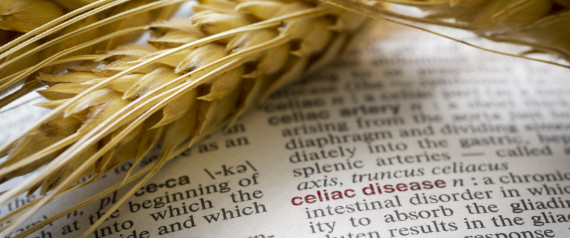


What if the biggest barrier to celiac disease diagnosis is its very treatment — the gluten-free diet?
Many factors play into the low diagnosis rate of celiac disease, but this could very well be one of them. The gluten-free diet has taken on a life of its own. It’s often portrayed as a weight loss diet, and endless athletes and celebrities tout the perceived health benefits of “going gluten-free.” You’ve probably heard all the buzz. You can lose weight fast on a gluten-free diet. Your skin will look so much better if you cut out gluten. Your overall health will improve without gluten.
But those statements are nothing more than just myths.
We are constantly inundated with messages from the media about the “magic” of a gluten-free diet. While some share accurate information with the masses, many irresponsibly perpetuate a cycle of misinformation, leading to the amplification of the gluten-free diet and the silencing of celiac disease.
May is Celiac Awareness Month. It’s a prime time for those with celiac disease and non-celiac gluten sensitivity (“gluten sensitivity”) to pull together and rise above the noise of the gluten-free fad diet. And while Celiac Awareness Month is an exciting time for our community, it’s not just about us. It’s about the 83 percent of you out there> living with celiac disease and not even knowing it.
That statistic is shocking, isn’t it? An estimated 3 million Americans are living with celiac disease, but only a mere 17 percent of them know it. Celiac disease is not the trendy condition it’s made out to be. It’s a serious genetic autoimmune disease that, left untreated or mismanaged, can lead to a host of health consequences, like osteoporosis, infertility and recurrent miscarriages, iron deficiency anemia and even certain cancers like lymphoma. Unlike people living with other autoimmune diseases (like Type 1 diabetes, rheumatoid arthritis or multiple sclerosis), those with celiac disease are lucky to know what launches their body’s violent attack on itself. Gluten.
You see, gluten isn’t some fattening ingredient or the golden ticket to weight loss — it’s a protein found in wheat, barley, rye and their derivatives. The majority of people have no issues with gluten and experience no ill-effects from eating it. For the 1 percent of the population who carry the celiac disease genes, though, gluten triggers an autoimmune response, resulting in damage to the villi of the small intestine, leaving them unable to absorb essential nutrients from food. But celiac disease doesn’t just affect the gut. It can impact almost every system of the body, and can prevent them from working properly as a result of malnourishment or other complications.Limited research suggests that up to another 6 percent of the population may live with gluten sensitivity. While gluten sensitivity produces similar symptoms, it does not result in the same intestinal damage celiac disease causes. Despite this, people with gluten sensitivity rely on the gluten-free diet to relieve their symptoms.
Casually experimenting with the gluten-free diet could prevent you from receiving an accurate diagnosis as people must be on a regular, gluten-containing diet in order to be accurately tested for celiac disease. Additionally, since celiac disease is genetic, not having an official diagnosis could rob your family members of receiving their own diagnoses that might prevent a cascade of devastating complications. First- and second-degree relatives of people with celiac disease are more likely to develop the autoimmune condition, which means they should talk to their doctor about getting tested. And because many people with celiac disease don’t experience any symptoms at all, it’s important that family members understand their risk.
What’s more, the mentality of the gluten-free fad harms people living with celiac disease every day because it creates an environment where food safety is left out of the conversation. It affects the child who can’t go away to summer camp for fear of getting sick. It prevents high school students from choosing a university that caters to their academic interests. It causes restaurants to serve food that has been unsafely prepared, putting the health of diners at serious risk. Did you know that just a few crumbs of gluten-containing food is enough to cause intestinal damage?
These are complicated issues and it will take focus and discipline to advance a patient-centered agenda and move the bar on diagnosis. But I am humbled by the everyday heroes in our community who are devoted to restoring their own health and the health of those around them.
I encourage you to visit the National Foundation for Celiac Awareness (NFCA) to meet our Celiac Awareness Month Heroes and learn more about how you can be a hero, too. Join our conversation on Facebook and Twitter to help us change the dialogue. Let’s give celiac disease the attention it deserves — not just for those of us who are already diagnosed, but for those of you who aren’t.
By Alice Bast
Source: Why You (Yes, You) Need Celiac Disease Awareness | Alice Bast.
Related articles






